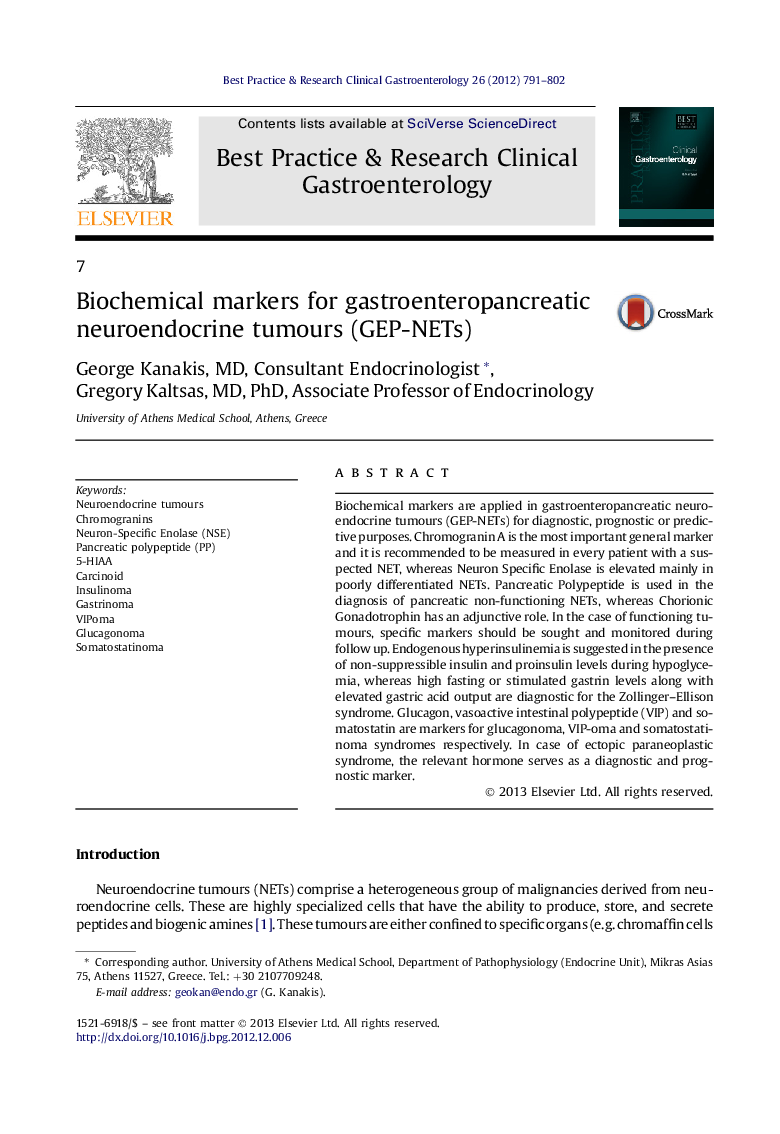| Article ID | Journal | Published Year | Pages | File Type |
|---|---|---|---|---|
| 6086386 | Best Practice & Research Clinical Gastroenterology | 2012 | 12 Pages |
Biochemical markers are applied in gastroenteropancreatic neuroendocrine tumours (GEP-NETs) for diagnostic, prognostic or predictive purposes. Chromogranin A is the most important general marker and it is recommended to be measured in every patient with a suspected NET, whereas Neuron Specific Enolase is elevated mainly in poorly differentiated NETs. Pancreatic Polypeptide is used in the diagnosis of pancreatic non-functioning NETs, whereas Chorionic Gonadotrophin has an adjunctive role. In the case of functioning tumours, specific markers should be sought and monitored during follow up. Endogenous hyperinsulinemia is suggested in the presence of non-suppressible insulin and proinsulin levels during hypoglycemia, whereas high fasting or stimulated gastrin levels along with elevated gastric acid output are diagnostic for the Zollinger-Ellison syndrome. Glucagon, vasoactive intestinal polypeptide (VIP) and somatostatin are markers for glucagonoma, VIP-oma and somatostatinoma syndromes respectively. In case of ectopic paraneoplastic syndrome, the relevant hormone serves as a diagnostic and prognostic marker.
